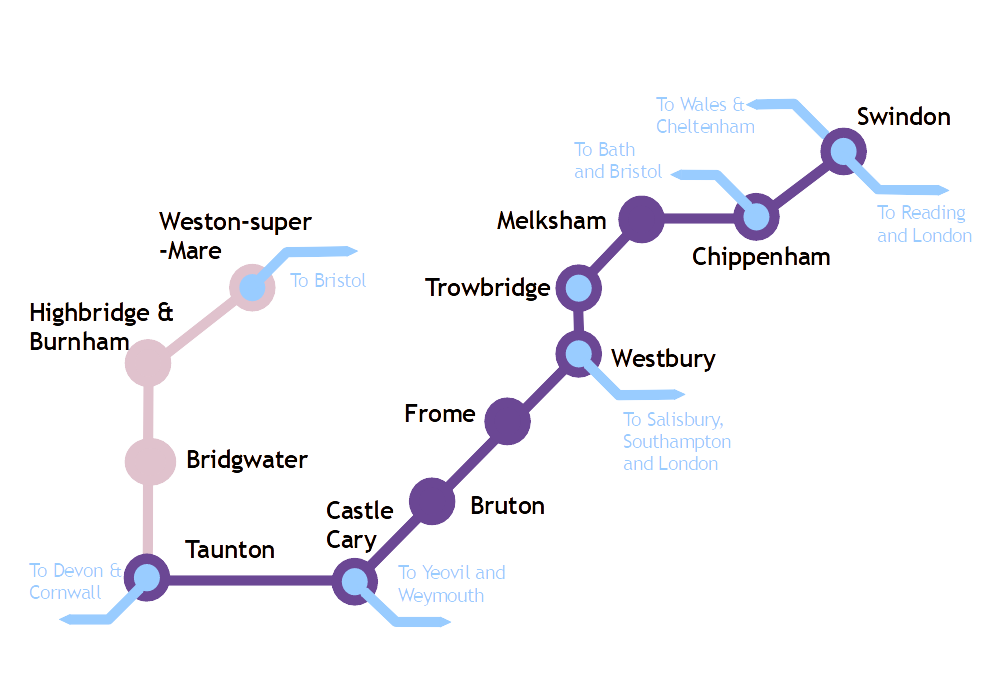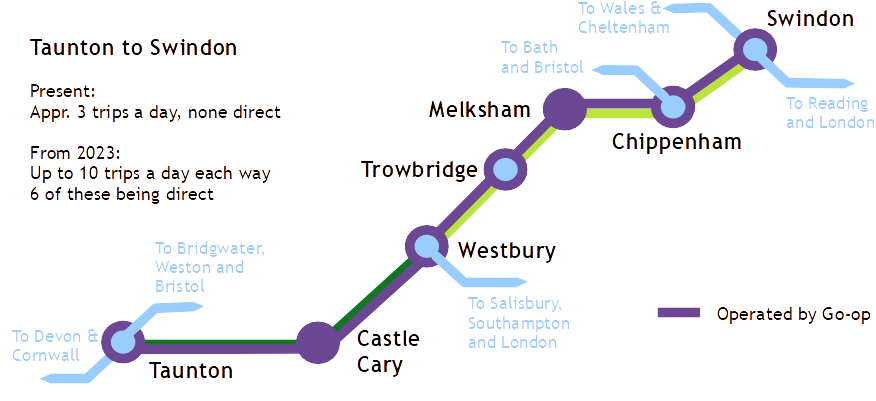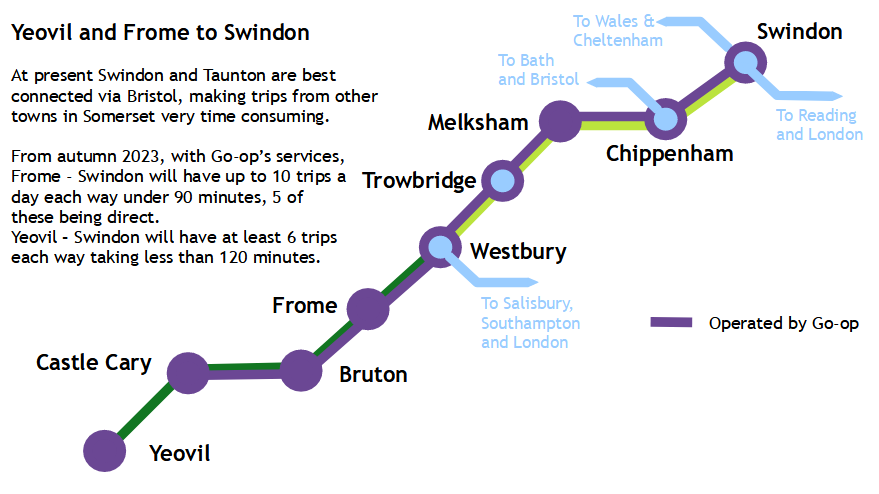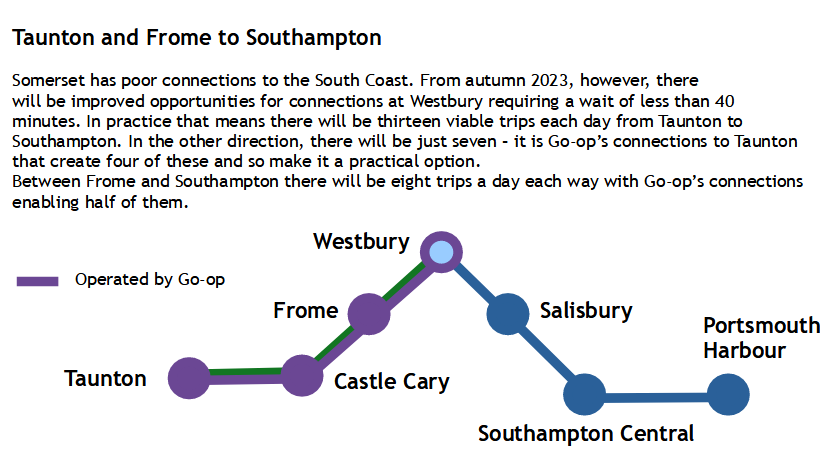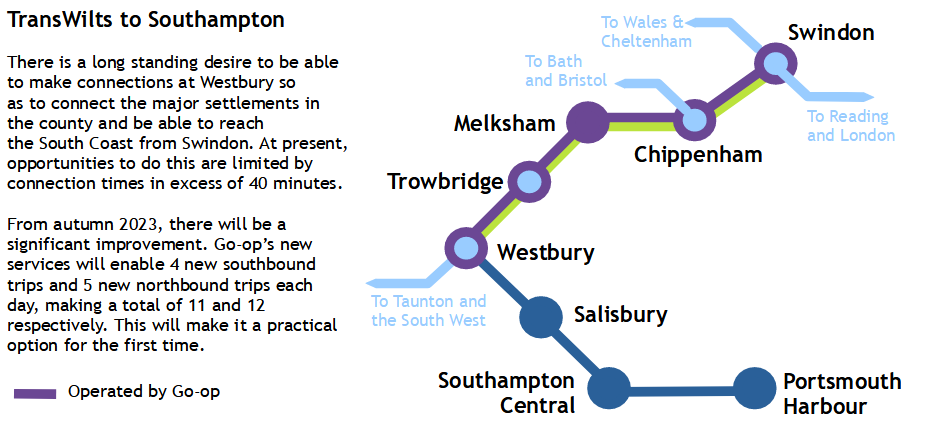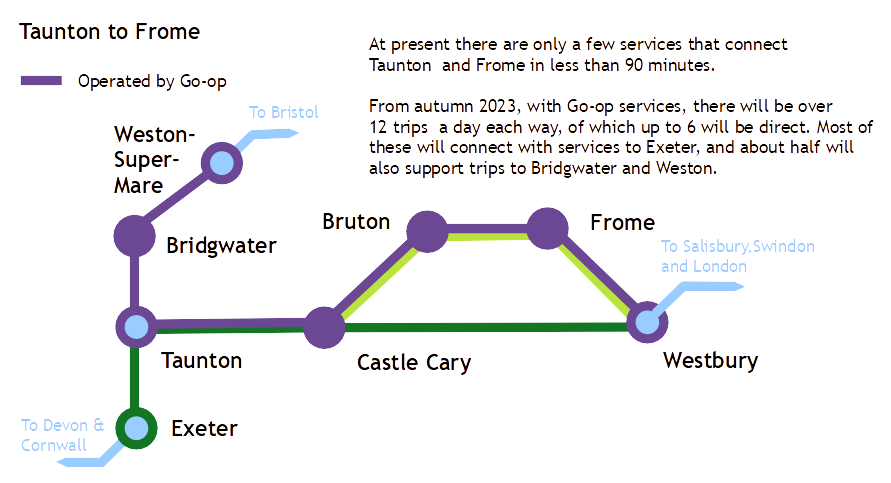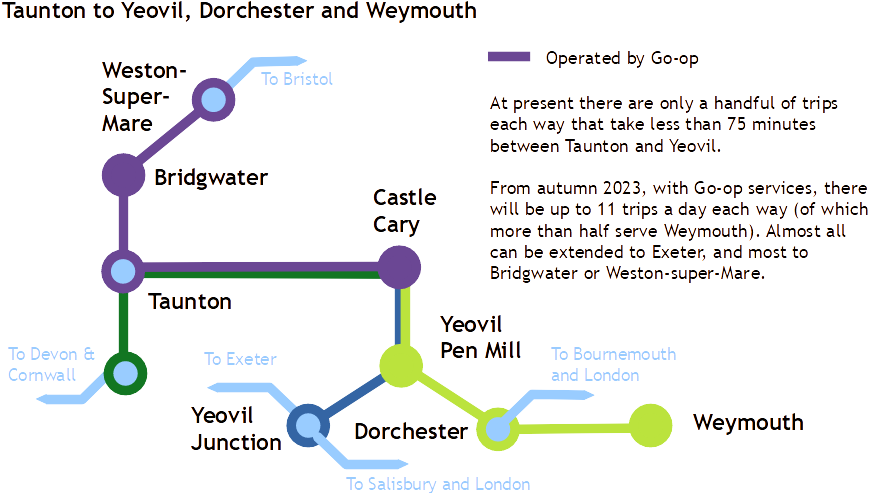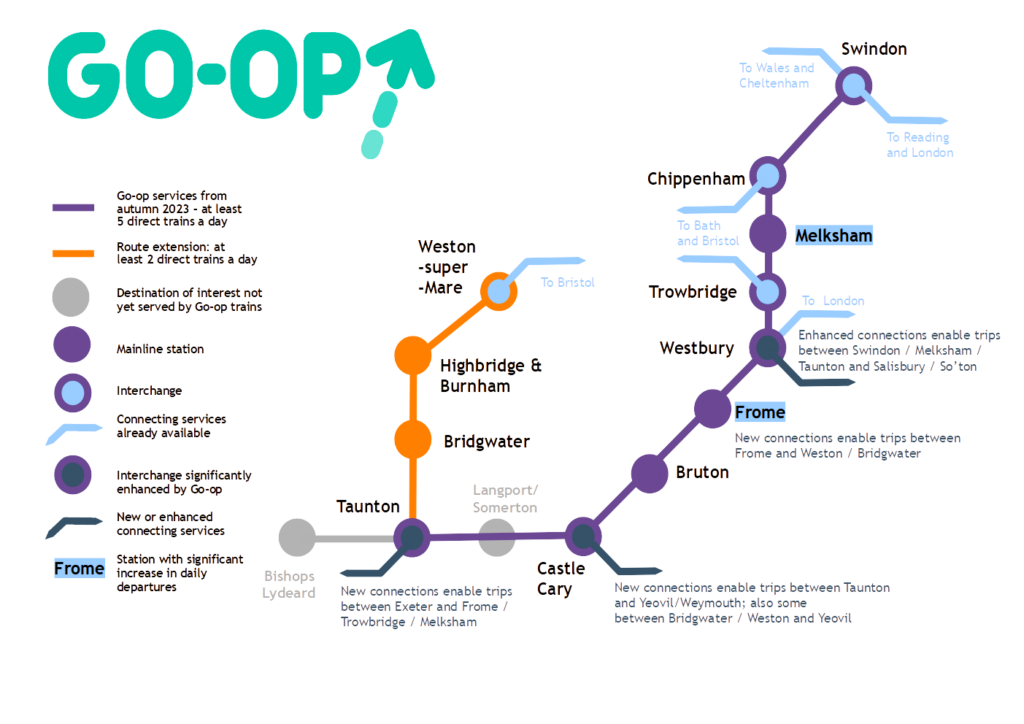Making vital connections across Somerset and Wiltshire
Our proposal for 2025
This shows the route that we plan to operate from the end of 2025 onwards – and which now has the approval of the rail regulator.
The core of the service between Taunton and Westbury is shown in purple. This will see six or more trains a day, improving the service levels in growing market towns.
They will also provide much needed connections for services to and from Yeovil, Salisbury and Exeter.
In addition, some services will be extended to Swindon; and we will also enhance travel up the Somerset coast with some extra trains between Taunton and Weston Super Mare.
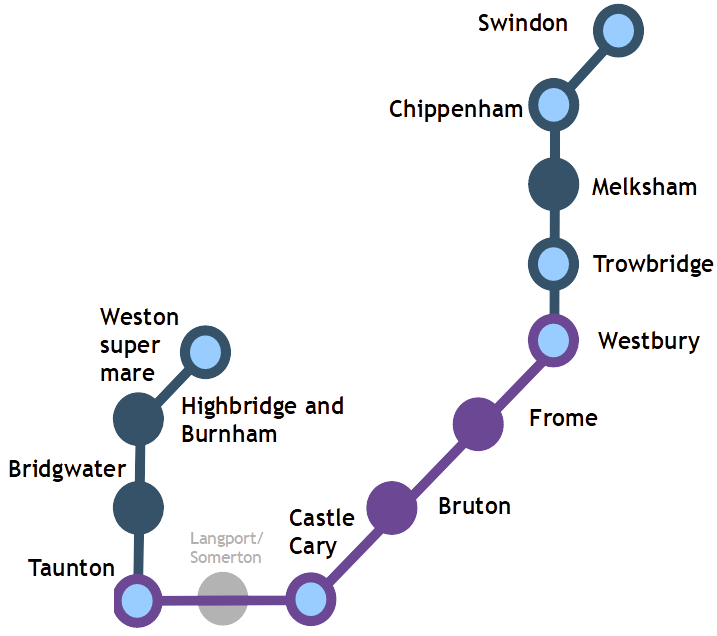
Go-op is the UK’s first co-operatively owned Train Operating Company
To begin with, Go-op will use diesel rolling stock. But our members have asked us to find more sustainable ways to operate public transport. So we undertook an Innovate UK funded feasibility study proving that a nine-tonne battery can be added to surplus electric train sets to operate efficiently on non-electrified mainline routes – a solution known as an IPEMU.
Go-op hopes to pave the way for the electrification of routes where overhead line power delivery is either incomplete or absent, and impractical to install. It requires not only advanced battery technology on the train itself, but also lineside batteries to support rapid recharging. This electrification of stations may also allow for an expansion of electric car club services, and interchange on to electric buses, in the future.
Frequently asked questions
You can also check out our ‘Green Signals’ interview below.
What will the timetable look like?
GWR is seeking enhancements to services in the Westbury area and has asked Network Rail to convene a working group to study ways in which the timetable could be optimised to deliver improved customer benefit and network performance. Go-op has been invited to take part and introduce its proposed timetable so that any new services that do gain regulatory approval will be fully integrated into the new timetable and thoroughly tested for any adverse impacts on existing operations.
In the autumn of 2022 a regular operational pattern was agreed that increases service levels, maintains punctuality and reliability, and helps passengers to plan journeys confidently. In many cases this will mean that they can switch from car to rail, with consequential reductions in congestion and pollution.
This significant overhaul of timetables in the Westbury area is expected to be introduced in May 2023 for GWR services, but Go-op has been obliged to delay its start to December 2025 to allow for improvements to level crossing safety and more detailed consideration by the ORR. This will allow Go-op’s services to be progressively introduced, with the full timetable implemented in spring 2026.
Further timetable changes may be needed between now and then, so it is not yet possible for us to publish a full timetable.
What rolling stock will you use?
There is a shortage of diesel multiple units in the UK, which has made rolling stock one of the most challenging elements in our planning (to say nothing of our desire to move beyond fossil fuels). However, there is a fleet of class 150 diesel multiple units operating in Wales that will soon be coming off lease.
They are small and getting near the end of their operating life, and so as passenger numbers grow we will need to progress to something else. But they are affordable and available, and can help us get out service off to a good start.
What are your long term plans?
We are keen to work with the West Somerset Railway to meet their aspirations for connections with mainline services at Bishops Lydeard. We are also very supportive of the campaigners working to secure new stations at Cullompton, Wellington and Somerton & Langport – we’d certainly like to serve these important towns.
If capacity permits, we’d like to extend our route beyond Swindon – not to London (which we think is actually quite well connected by rail) but rather to Oxford and the midlands. In general, we aim to make local areas more self reliant and interconnected, and not so dependent on distant cities.
Lastly, we are all about helping people use multiple modes of transport – we want to connect our trains to buses, cycle routes and car clubs whenever possible. Some of these might be run by independent co-ops that are part of the Go-op ‘family’.
See below for more details of the connections we’re enabling… but note that they may not as yet all take account of the recent change to our proposed start date.
